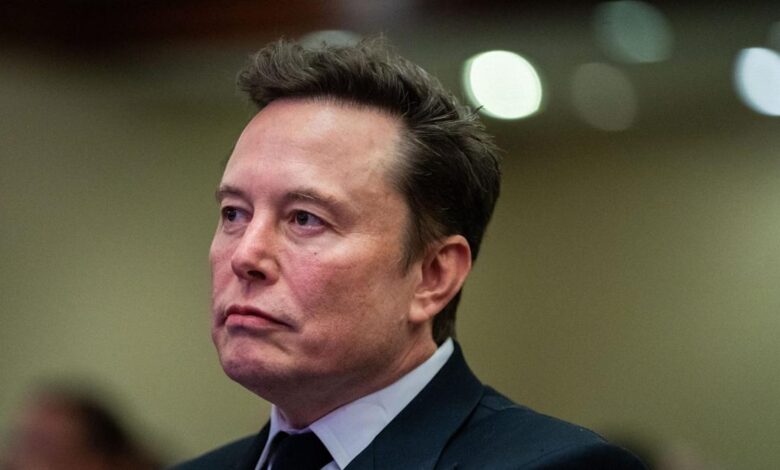Like so many earth-shaking industrialists, the life of controversial figure Elon Musk has been as successfully problematic as it has been consequential. However, when you’re the richest person in the world with an estimated net worth of $394.2 billion, people tend to pay attention when you give financial advice.
Learn More: 4 Secrets of the Truly Wealthy, According To Dave Ramsey
Find Out: 12 SUVs With the Most Reliable Engines
“Elon Musk shares insights that ring true for many, weaving together ideas about value, tenacity, and constant self-growth,” said Keith Donovan, a startup advisor and the founder of Startup Stumbles. “While his guidance might be illuminating for many, it’s essential to remember that everyone’s journey to success is as unique as their fingerprint.”
While you might never become a billionaire by heeding Musk’s advice, it can’t hurt to make similar money moves and hope for the best. Like him or not, his tips could make you a stronger leader, a bolder entrepreneur and a better wealth builder.
Musk built his personal and corporate brand on the concept of bettering the human race — namely, through space exploration and emissions-free vehicles. Though current events may contradict this, Musk maintains that people should “do things that are useful to your fellow human beings, to the world. It’s hard to be useful. Very hard.”
This philosophy has made Musk the world’s richest person — but is it practical advice? One could argue that being useful is also about helping create services that society needs and potentially spreading the wealth.
According to a content writer at The Small Business Blog, Fin Wheatley, being useful isn’t just about providing a service or product. “It’s about filling a gap, a void in society that needs to be addressed.”
Many gaps need to be patched in today’s economic climate so having an inside track to data science, AI and electric alternatives could be quite useful for human beings. Though it remains to be seen as to how Musk will wield his newfound political power, it is a good motto for sustainable success.
Try This: 10 Genius Things Warren Buffett Says To Do With Your Money
In the past, Musk shed some light on the mindset of hustling for your piece of the pie. Again, good in theory, but how does it pan out in practice?
“Some very smart people have taken an attitude of, like, doing things that seemed morally questionable,” he said. “It’s often because they have at a base axiomatic level a zero-sum mindset without realizing it…
“If you have a zero-sum mindset, then the only way to get ahead is by taking things from others. If the pie is fixed, then the only way to have more pie is to take someone else’s pie. But this is false… It’s much better to work on adding to the economic pie. Like I said, creating more than you consume.”
Many financial experts would agree that this concept of pie has infinite applications and is ultimately the essence of success in business.
“It’s easy to get caught in the rat race, trying to seize opportunities from others,” said Musk. “But my experience, particularly during my days as an investment analyst, taught me that the market isn’t zero-sum.
“Rather than vying for a slice of the existing pie, why not bake a bigger one? Share it with others, collaborate and create opportunities that weren’t there before. By focusing on value creation, the rewards, both monetary and personal, follow.”
Like Bill Gates, Warren Buffett, Mark Cuban and countless other successful people, Elon Musk thinks reading is part of the foundation for success.
He said, “I would encourage people to read a lot of books. Try to ingest as much information as you can, and try to also develop a good general knowledge so you at least have a rough lay of the land of the knowledge landscape.”
Donovan agrees.
“Just as a cup of coffee can kickstart our mornings, diving into a good book opens up our minds, stimulates creativity and helps in making informed decisions,” he said. “While there’s a whole universe of ways to gain knowledge, reading is a timeless classic.”
There’s no doubt reading can spur personal growth, but financial success?
“It’s through books that I stumbled upon a novel strategy or a different perspective, often changing my course for the better,” said Wheatley. “It was during a deep dive into a book on behavioral economics that I realized how human behavior and money flow are deeply intertwined. Understanding this made me a better businessman and a more compassionate leader.”
Musk, who is famous for his grueling schedule, is on the record as saying he works 80-100 hours per week. He once tweeted, “… nobody ever changed the world on 40 hours a week.”
However, Musk doesn’t just work hard. He works through deflating disappointments.
His first three Falcon 1 rocket launches with SpaceX were failures, and he’s watched many other rockets crash, burn, run out of propellant or otherwise fall back to earth in catastrophic fashion. But like Jeff Bezos, Thomas Edison, Steve Jobs and all great innovators, he kept pushing forward.
“The landscape of business is littered with tales of failures, mine included,” said Wheatley. “It’s in those valleys of despair that true learning happens. Musk’s emphasis on embracing failure isn’t about celebrating mistakes but understanding that they’re often the stepping stones to monumental success.”
Wheatley also added, “It’s about resilience. It’s about getting up, dusting off and charging forward with renewed vigor.”
Musk went on to create Falcon 9, which achieved an astonishing 99% success rate with just two failures in 232 launches.
Of the experience, Musk said, “Persistence is very important. You should not give up unless you are forced to give up.”
Now, he’s taken his own advice all the way to the White House in 2025.
Andrew Lisa contributed to the reporting for this article.
More From GOBankingRates
This article originally appeared on GOBankingRates.com: Elon Musk’s 4 Tips for Success: Are They the Key to Getting Rich?





